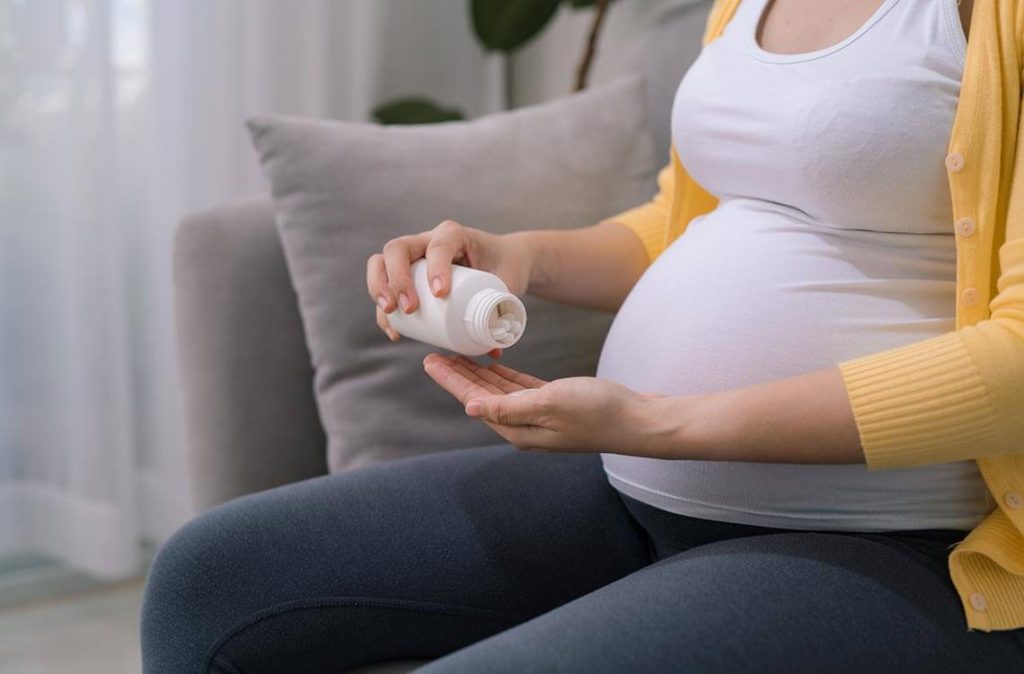As Malaysia is slowly starting to be more accepting of mental healthcare and the importance of medication, particularly antidepressants, more and more people have begun using them. Including parents and mothers (yes, even expectant and prospective ones).
But as with many drugs, there could be some dangers associated with taking certain kinds of medication while pregnant. If you’re taking antidepressants and thinking of getting pregnant, here’s what you need to know.
Importance of Antidepressants
For many women struggling with depression, antidepressants are crucial for helping maintain cognitive function, positive mood, and in some cases, even help you sleep better.
It’s also worth noting that if you’re on antidepressants (and have been taking them for any period of time), you can’t just suddenly stop overnight. There is a weaning period for people who want to get off their meds which involves slowly reducing the dosage overtime.
This is done in order to minimise or eliminate withdrawal symptoms. This 2015 study showed that abrupt discontinuation of antidepressants can lead to anxiety, insomnia, irritability and even headaches.
The Possible Dangers of Antidepressants for Pregnant Women
No medication is 100% guaranteed to be safe for pregnant women. When it comes to antidepressants, the research findings show conflicting results. This 2015 study, for instance, found that antidepressants (particularly paroxetine or fluoxetine) taken during pregnancy increased the likelihood of birth defects.
On the other hand, another study published in 2022 concluded that antidepressants are not dangerous for the developing foetus. There are also various factors and variables that come into play. The type of antidepressant, the mother’s pregnancy age, et cetera, all play a crucial role.
Be that as it may, according to this research, antidepressants have been linked to several birth defects, newborn disorders and even infant death. These include:
- Birth defects (anencephaly, craniosynostosis, omphalocele, limb malformation, etc)
- Heart defects
- Miscarriage
- Premature birth
- Low birth weight
- Persistent pulmonary hypertension in the newborn (PPHN)
Babies who have been exposed to antidepressants in the womb have also been found to exhibit other symptoms like hypoglycaemia (low blood sugar), irritability, trouble feeding and breathing difficulties. But otherwise, antidepressants did not affect their mood, behaviour, IQ or attention.
Medication or Motherhood
Most women suffering from depression are presented with two options should they wish to conceive: stop medication and suffer a possible relapse, or continue with the prescription and face the risks. A painful dilemma.
Medical consequences aside, depression itself can be seen as a risk on its own. Almost as much as antidepressants. For instance, untreated depression can severely impact your quality of life and even endanger your baby if you’re pregnant.
Depressed people may often have trouble taking care of themselves; they may neglect their hygiene, health and diet. Or for some, possibly spiral into substance abuse, dangerous activities and even self-harm.
So, skipping antidepressants may not be an option for many. But in general, women who suffer from severe depression or have had suicidal thoughts should not discontinue antidepressants.
Find a Compromise
It’s unfair to give such extreme ultimatums to prospective mothers who suffer from depression. There are ways to ensure the baby’s safety and the mother’s wellbeing—without complete removal of antidepressants. For instance, you can discuss with your doctor if it is possible to either reduce or replace your current antidepressant with one that carries that lowest risk for the baby.
Studies have shown that the following antidepressants are among the safest options for pregnant women:
- Fluoxetine (Prozac, Sarafem)
- Citalopram (Celexa)
- Sertraline (Zoloft)
- Amitriptyline (Elavil)
- Desipramine (Norpramin)
- Nortriptyline (Pamelor)
- Bupropion (Wellbutrin)
Moreover, even if you do decide to eliminate antidepressants entirely, you can still make lifestyle changes to manage your depression without resorting to medication. These include trying out yoga, meditation, CBT (cognitive behavioural therapy), dietary restrictions and stress management.
Pregnancy is Possible Even with Depression
Pregnancy and depression can be a difficult topic. You want to protect the baby from any possible side effects of antidepressants. But you also don’t want the mother to relapse.
At the end of the day, it’s best to discuss this issue with both your obstetrician and psychiatrist. They will give you the most in-depth information that aligns with your needs. Pregnancy is possible even with depression, as long as you have medical experts guiding you every step of the way. You’ve got this, ladies!
Disclaimer: The information provided in this article is for informational purposes only and should not be considered as medical advice from Motherhood. For any health-related concerns, it is advisable to consult with a qualified healthcare professional or medical practitioner.
For more insightful stories and fun recipes, stay tuned to Motherhood Story!
